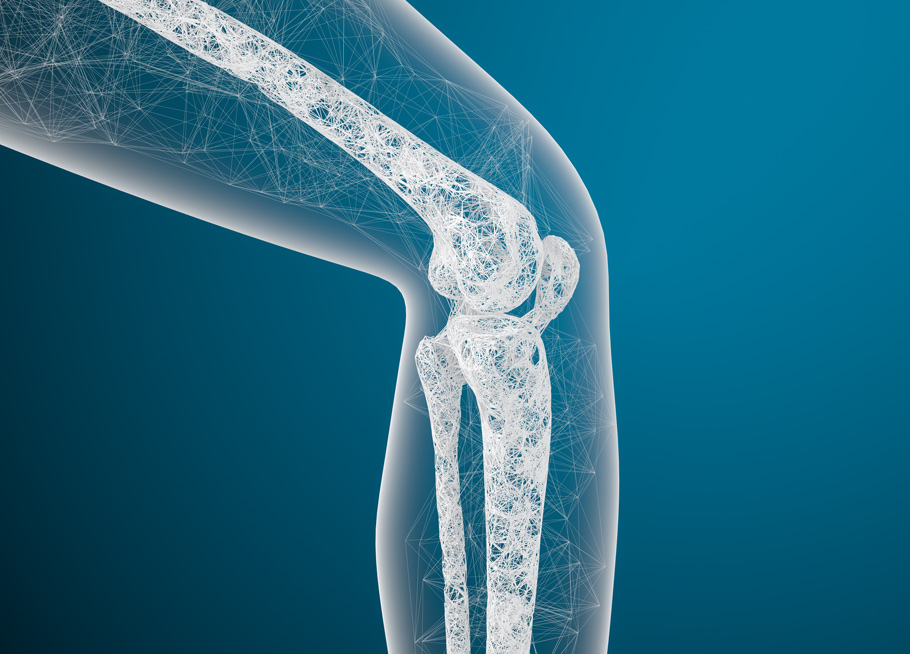
Inflammatory arthritis is an umbrella term for complex autoimmune conditions where the immune system mistakenly attacks the body’s own tissues – in particular, the tissues in the joints – causing inflammation and joint pain. Recent research highlights the significant role of the gut microbiome in the development and management of inflammatory arthritis, leading to the recognition of the importance of gut health within arthritis treatment plans.
Below, we explore the connection between inflammatory arthritis and the gut microbiome, including how lifestyle factors can influence this relationship.
The Gut Microbiome And Immune System Interaction
What Is The Gut Microbiome?
The gut microbiome comprises a vast collection of trillions of microorganisms residing in the digestive tract, and plays a key role in regulating the immune system. A balanced microbiome helps maintain immune homeostasis, reducing the likelihood of the immune system attacking the body’s own cells. Dysbiosis, or an imbalance in the gut microbiome, has been linked to a range of autoimmune diseases, including rheumatoid arthritis (RA), psoriatic arthritis (PsA) and lupus.
A 2013 study by Dr Jose Scher at New York University’s Psoriatic Arthritis Centre and Microbiome Center for Rheumatology and Autoimmunity found a significant association between the gut bacterium Prevotella copri and RA. This discovery has led to numerous studies, deepening our understanding of how gut microbes influence autoimmune conditions. In fact, it was found that dysbiosis may be present in most autoimmune rheumatic diseases, and that (in animal models) high levels of inflammatory microbes, or too few beneficial ones, can be the trigger for these diseases.
But which comes first, gut issues or arthritis? Dr Scher’s study suggests that a poorly balanced microbiome could be a cause of arthritis, but we also know that certain types of arthritis can lead to gut issues. For example, in those with RA specifically, a percentage of patients will also develop rheumatoid vasculitis, a complication affecting the blood vessels, which also causes inflammation to develop in the GI tract. As such, more research is needed to determine the answer to this question.
How Lifestyle Factors Influence The Gut Microbiome
Maintaining a healthy gut microbiome can positively contribute to the management of inflammatory arthritis, and several lifestyle factors can influence gut health. These include:
- Diet – Individuals, regardless of whether they have inflammatory arthritis, should maintain a healthy diet for better overall health. But for those with this type of arthritis, a healthy, balanced diet is imperative to help prevent flare-ups and disease progression.
- Sleep – Good sleep supports the balance of the gut microbiome. Disrupted sleep patterns can negatively impact gut health and, consequently, immune function.
- Exercise – Regular physical activity promotes a diverse and healthy gut microbiome, which in turn supports immune regulation.
- Stress management – Chronic stress can lead to gut dysbiosis. Techniques such as mindfulness, meditation and yoga can help maintain a balanced gut microbiome.
Should I Take Supplements To Maintain A Healthy Gut?
If you are concerned about the gut microbiome and inflammatory arthritis, you can take supplements to help improve or maintain your gut health, but these should be taken in addition to healthy lifestyle habits as outlined above.
Vitamin D and probiotics are two supplements that individuals can take to care for their gut, and in turn, their immune system and joint health. Vitamin D supports the immune system, and helps maintain a balanced microbiome. Probiotics, which are beneficial bacteria, already exist in your system, but supplementing them is thought to help restore natural balance. While, in previous years, poor delivery systems meant that oral probiotics were not properly absorbed by the body, modern technology allows oral probiotics to bypass the stomach’s acidic environment, ensuring they reach the intestines where they are most needed.
Silent Gut Microbiome Problems And Inflammatory Arthritis
Dr Naveen Bhadauria, Consultant Rheumatologist, explains: “Issues with the gut microbiome can often be silent, meaning some people might not be aware that they have a problem. However, it’s not uncommon for patients to present with both arthritic symptoms and gastrointestinal issues such as irritable bowel syndrome (IBS).
“This overlap underlines the importance of considering gut health in the management of inflammatory arthritis, even if symptoms are not present.”
What To Do Next
Achieving a balanced gut microbiome can be challenging, as it is difficult to measure your progress, especially if you don’t have any symptoms of gut issues. However, making healthy lifestyle choices is key to giving your gut – and therefore your joints – the best shot at good health.
If you have aches or pain in multiple joints, regardless of whether or not you are also experiencing gut problems, it is important to see a Consultant Rheumatologist as soon as possible. Early diagnosis is key in the prevention of inflammatory arthritis progression and flare-ups.
Contact Dr Naveen Bhadauria on 0207 126 7264 or visit our contact page for more details.
Article by Dr. Naveen Bhadauria



